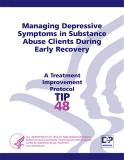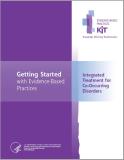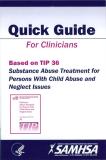
This advisory reviews diabetes and how it relates to mental illness, stress, and substance use disorders. It highlights ways to integrate diabetes care into behavioral health treatment, such as screening and intake, staff education, integrated care, and counseling support.
Units per Product
Download
Diabetes Care for Clients in Treatment
File Type: PDF
File Size: 795 KB







